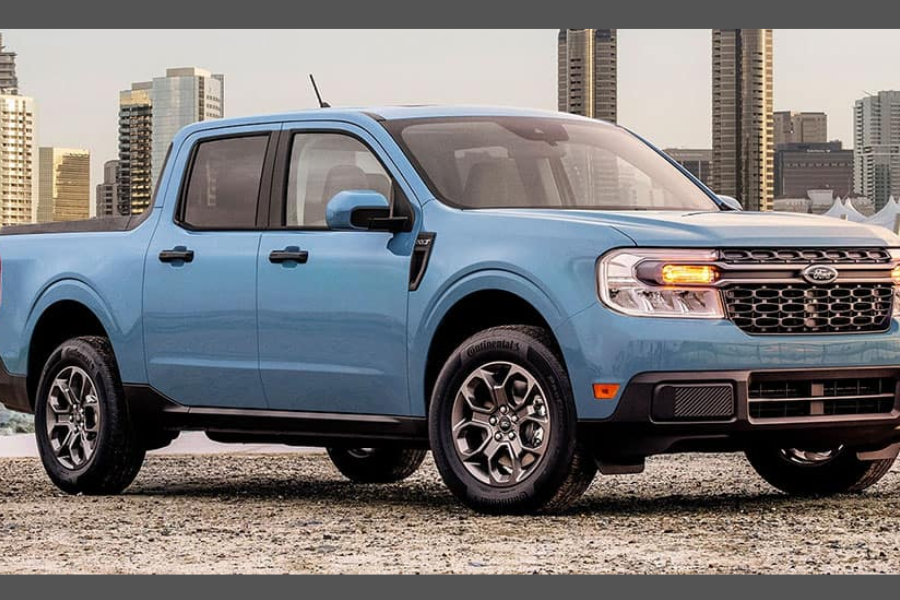Key Takeaways:
- Identify the top factors to consider when choosing a mid-size pickup truck.
- Learn how to avoid common pitfalls that lead to lemon law claims.
- Find tips on researching vehicle reliability and customer satisfaction.
Importance of Research
Choosing the right mid-size pickup truck requires diligent research to avoid potential lemon law risks. It’s not just about comparing price tags; looking into vehicle history, brand reputation, and owner experiences is crucial. Conducting thorough research can help you avoid pitfalls and make an informed decision. A good starting point is examining comprehensive reviews and expert opinions on platforms such as Kelley Blue Book and Consumer Reports. By investing some time to research, you’ll gain valuable insights into various models’ longevity, safety features, and overall performance.
Furthermore, exploring the historical reliability of different trucks can prevent future headaches. Checking for any recalls or widespread issues associated with specific makes and models can provide an additional layer of security. Manufacturers with frequent recalls might not have as stringent quality controls, resulting in potential defect risks. Visiting online forums and social media groups where real owners share their experiences is also beneficial. This crowdsourced information often highlights practical, everyday insights that can be pivotal in your decision-making process.
Reliability and Durability
Reliability and durability are key factors when choosing a mid-size pickup truck. Brands like Toyota and Ford are often praised for their long-lasting vehicles. Reviewing reliability ratings and durability tests can give insight into how well a truck will hold up over time. For instance, the GMC Sierra has been flagged in certain circles for specific GMC Sierra problems, so paying attention to common issues reported can steer you towards a more reliable model. Understanding a vehicle’s track record through verified customer feedback is crucial in determining its reliability.
The quality of materials and construction can significantly impact a truck’s durability. Trucks with robust frames and high-quality interiors are less likely to suffer from premature wear and tear. Additionally, checking the type of engine and transmission used in the truck can provide hints about its longevity. Diesel engines, for example, are known for their durability and efficiency, though they might come with higher initial costs and maintenance requirements. Take into account aspects like rust resistance and the truck’s ability to endure harsh weather conditions, which are essential for long-term durability.
Certified Pre-Owned Options
Opting for a certified pre-owned (CPO) vehicle can significantly minimize risks associated with lemon laws. CPO vehicles are rigorously inspected and backed by manufacturer warranties, providing additional peace of mind. This makes them a reliable choice compared to their non-certified counterparts. Additionally, CPO programs often have added benefits like roadside assistance and special financing rates. This level of scrutiny ensures that any underlying issues are addressed before the vehicle hits the road again.
CPO vehicles offer a blend of affordability and reliability that’s hard to beat. They typically come from lease returns or trade-ins, meaning they have relatively low mileage and are often only a few years old. The rigorous inspection process covers hundreds of points, ensuring the vehicle meets high quality and performance standards. This makes CPO trucks an excellent option for budget-conscious buyers who still want the peace of mind that comes with ownership. The extended warranties often cover major systems like the engine, transmission, and electrical components, reducing the risk of ending up with a lemon.
Reading Reviews and Ratings
Reviews and ratings from both experts and customers can offer invaluable insights. Websites like Edmunds and J.D. Power provide detailed analyses of various truck models, while online forums and user reviews can reveal real-world experiences. Understanding the pros and cons shared by current owners can highlight potential red flags and positive qualities that might not be evident from a test drive alone. This multi-faceted approach ensures a well-rounded view of each vehicle’s strengths and weaknesses.
Expert reviews often bring a technical perspective that casual users might miss. They can provide insights into a truck’s performance, fuel efficiency, safety features, and overall value under different conditions. On the flip side, customer reviews offer a glimpse into the daily usability of the vehicle. How does it handle daily commutes, long drives, or heavy towing? Are there recurring issues that many owners face? Combining these perspectives can give you a balanced, comprehensive understanding of what to expect. Monitor for consistent complaints or praises, as these often reflect a particular model’s most significant issues or benefits.
Test Driving
Test driving is a critical step in selecting the right mid-size pickup truck. Pay attention to comfort, handling, and the vehicle’s responsiveness during the test drive. Test various driving conditions, such as highway speeds and city traffic, to assess the truck’s performance. Testing the vehicle comprehensively can reveal potential issues that might not appear at first glance. If you notice anything out of the ordinary, consider exploring other options. A test drive isn’t just about how the vehicle drives; it’s also about how you feel while driving it.
Test all the features, from the infotainment system to the air conditioning and cruise control. Check the visibility from the driver’s seat, as some trucks may have blind spots that can be problematic. Keep an ear out for odd sounds, as these could point to underlying mechanical problems. Getting a second opinion by going with a friend or family member is also a good idea. They may have noticed something you missed. You can better understand the truck’s capabilities and limitations by driving it on various types of roads, enabling you to make an informed selection.
Warranty Coverage
A robust warranty can serve as a safety net and minimize financial risks in the event that problems occur. Ensure the warranty covers components such as the engine, transmission, and electrical systems. Some brands offer extended warranties that cover up to 100,000 miles or more. Comparing warranties between different manufacturers can reveal which brands stand behind their products more confidently. A robust warranty demonstrates the manufacturer’s trust in their product’s quality and reliability.
In addition to the basic warranty, look for inclusive services such as roadside assistance and free maintenance packages. These extras can add significant value and enhance your ownership experience. Understanding the specific terms of the warranty, such as what is and isn’t covered and the duration of coverage, is essential. Although they are frequently an additional expense, extended warranties offer even more peace of mind. You can determine whether it is beneficial by balancing the expense with the possible advantages. Dealerships frequently provide their warranty packages; to get the greatest value, weigh them against choices from the manufacturer.
Understanding Lemon Laws
Knowing your state’s lemon laws can save you significant hassle and expense. Lemon laws protect consumers from defective vehicles that fail to meet quality and performance standards. Learn the precise requirements and procedures for submitting a claim. Knowing the laws in your state will help you be more prepared in case something goes wrong with your new truck. Each state has its regulations. Awareness of lemon laws empowers you to take the necessary steps if you’re sold a defective vehicle.
Lemon laws typically require a vehicle to have a “substantial defect” within a specific time frame or mileage limit. This defect must significantly impair the vehicle’s use, value, or safety. The customer may be entitled to a replacement or refund if the defect is not corrected after a fair number of repair efforts. Keeping detailed records of all repairs and communications with the dealer or manufacturer can be crucial in building a strong case. Legal resources and agencies in your state can provide guidance and support during this process. A clear understanding of your rights under the lemon law can prevent you from being stuck with a defective vehicle.
When to Seek Legal Advice
If you are dealing with persistent issues despite multiple repair attempts, seeking legal advice may be necessary. Getting advice from a lawyer who handles lemon law disputes might help you decide what to do. They can help you pursue a fair result and navigate the complexities of the legal system. Obtaining professional legal advice may be especially beneficial when a manufacturer refuses to comply or needs to respond to your accusations. A skilled attorney can defend you and show that your rights are respected.
Many lemon law lawyers take cases on a contingency fee basis, meaning they only get paid if you prevail. This can lower the barrier to legal representation so you can pursue justice without paying a large upfront fee. Your attorney can help with evidence collection, manufacturer negotiations, and court representation if needed. On related matters, such as charges of consumer fraud or warranty violations, they can also provide you with legal counsel. Having a knowledgeable attorney can improve your chances of a favorable outcome and provide you with the support you need to deal with your automotive issues.










